Reporter Chen Xiaoli
With the acceleration of the pace of social life, the increase of various pressures, the aging of the population, and the change of diet structure, the incidence of male diseases is increasing year by year, and prostate cancer Such diseases have seriously threatened the life and health of contemporary men and affected the quality of life of contemporary men.
On the occasion of Father’s Day, in order to improve the early diagnosis rate of prostate cancer and benefit the majority of male patients, on the morning of June 16, the Department of Urology, Qilu Hospital of Shandong University, led by the Department of Urology, joined forces from Jinan, Qingdao, Tai’an, Nearly 50 hospitals in Linyi, Yantai, Weihai, Weifang, Zibo, Jining, Zaozhuang and other cities jointly carried out free prostate cancer screening activities and held public welfare science lectures.
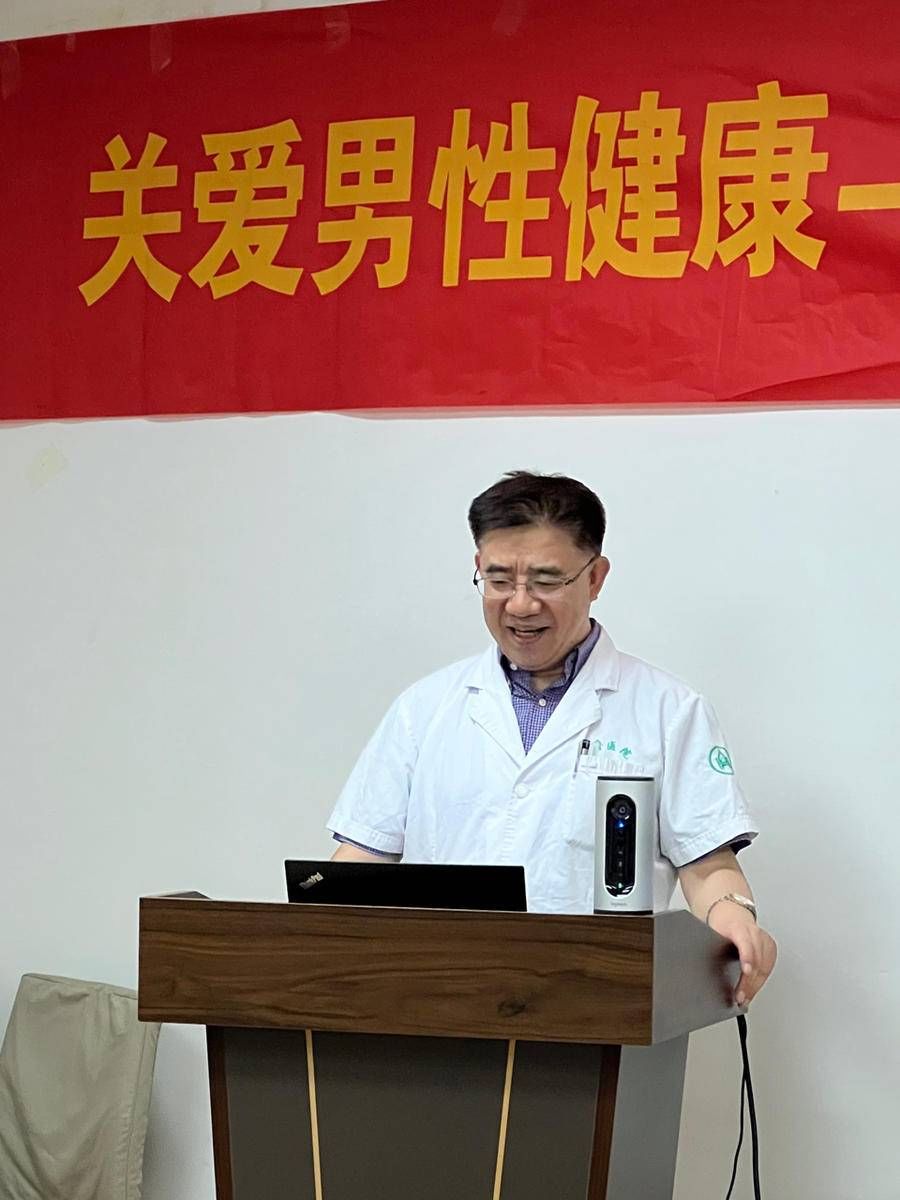
(Shi Benkang, director of the Department of Urology, Qilu Hospital of Shandong University, presided over the online launching ceremony)
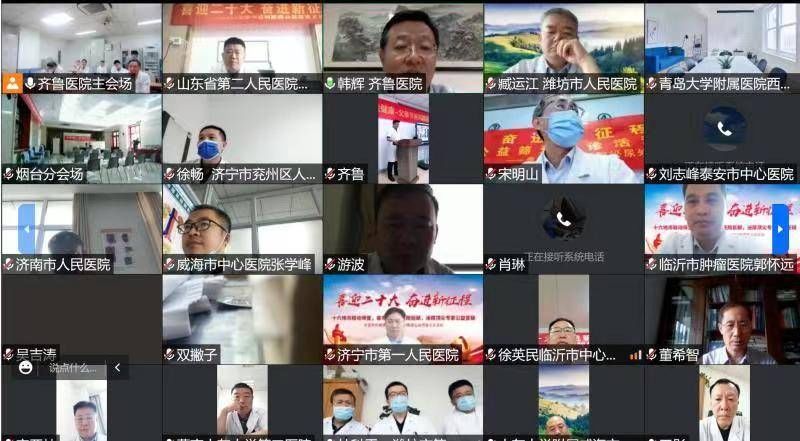 < p>(Online Launching Ceremony)
< p>(Online Launching Ceremony)
The incidence of prostate cancer continues to rise, and many men in their 40s are diagnosed with prostate cancer
kidney, ureter, bladder and The urethra together make up the urinary system of our body. In men, the urinary system also includes the prostate. Through the production and excretion of urine, the urinary system helps our body to excrete wastes, water, etc. produced by metabolism, and regulates the total amount of fluid, electrolytes and acid-base balance in the body.
If the human body is regarded as a factory, then the urinary system is the “sewers” responsible for purifying sewage. However, prostate cancer, benign prostatic hyperplasia, etc. may cause “blockage” of the urinary system. If not treated in a timely manner, it will cause fatal damage.
“Prostate cancer is a common malignant tumor of the male reproductive system”, Shi Benkang, director of the Department of Urology, Qilu Hospital of Shandong University, introduced that although the incidence of prostate cancer in Asia is much lower than that in Europe and the United States, the incidence of prostate cancer in my country has increased in recent years. The rate has been on the rise, especially in developed cities such as Shanghai, where the incidence of prostate cancer is higher.
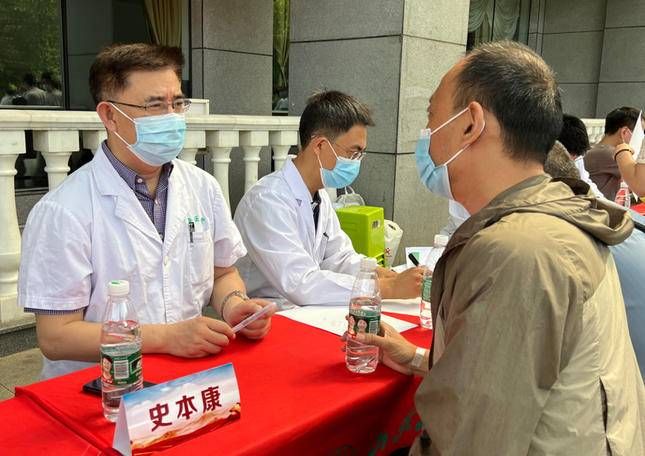
(Shandong University Qilu Hospital Free Clinic)
“Prostate cancer patients are mainly elderly men. Prostate cancer in men under 65 years old The incidence rate is relatively low, and the peak incidence is between 65 and 75 years old.” Shi Benkang told reporters, however, it is worth noting that the age of onset of prostate cancer has been moving forward in recent years, and men in their 40s and 50s have been detected. Prostate cancer is not uncommon.
Shi Benkang introduced that early-stage prostate cancer usually has no symptoms and is often discovered incidentally in digital rectal examination, ultrasonography, or surgical specimens of benign prostatic hyperplasia. It is especially important to note that even if there are symptoms of early prostate cancer, such as dysuria, frequent urination, urgency and dysuria, these symptoms are very similar to benign prostatic hyperplasia and are easily overlooked.
Because of this, most prostate cancer patients in my country have already metastasized when they were first diagnosed. “Currently, very few prostate cancer patients who visit the hospital are in the early stage, and patients with advanced/locally advanced prostate cancer still account for a large proportion. There is a long way to go for standardized diagnosis and treatment of prostate cancer early screening and early diagnosis.” Shi Benkang said.
PSA is an effective means of screening for prostate cancer. Qilu Hospital has carried out many free screenings.
Although the onset is insidious, the diagnosis of prostate cancer is very difficult. Not complicated. “Prostate cancer is one of the few malignant tumors that can detect specific antigens by blood testing, and screening is more convenient.” Shi Benkang reminded that PSA is the most commonly used method for detecting prostate cancer. PSA testing by drawing blood can effectively improve prostate cancer. Early diagnosis rate of cancer, early intervention, to achieve the goal of early diagnosis and early treatment.
Since 2019, cities in Shandong Province have successively carried out different forms of prostate cancer PSA screening activities, including community education, free clinics and free screening, etc. The cumulative screening has exceeded 20,000 cases .
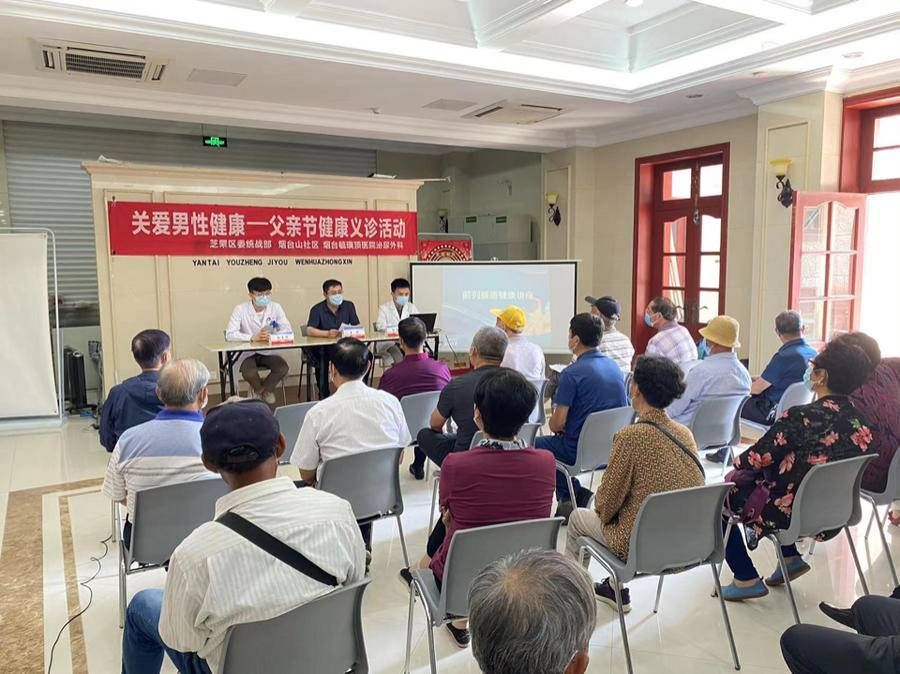
(located at the free clinic in Yantai City)
“I don’t go to the bathroom a lot during the day, but I have to get up several times at night. The second time, the amount of urine is also large, what’s the matter?” “I can’t hold back my urine now, and every time I go to the bathroom in a hurry, I don’t have much urine, and I want to run to the bathroom after a long time, and now I don’t want to go out. “In the past two years, I have been up at night, but I can’t sleep well.”…
At the scene of the free clinic, Shi Benkang and his team patiently asked and answered questions for the on-site consultants one by one. Examinations and treatment recommendations were made for those in need. For male personnel who meet the screening conditions, blood samples can be directly collected for free on-site for PSA testing. Those with abnormal test results will be notified by phone, the staff said.

(Free PSA test for blood draw at the free clinic)
At the same time, Shi Benkang also reminded everyone at the free clinic that men over 50 years old, Men over the age of 45 with a family history of prostate cancer and breast cancer (both share a common gene mutation site) should be screened for prostate cancer, so that early diagnosis and treatment can be achieved, and treatment effects and quality of life can be improved.
“People with family history must be screened early.” Shi Benkang said that there was a case of three brothers suffering from prostate cancer. “One of them came to the doctor because of prostate cancer and found that he had prostate cancer. BRCA gene, he suggested that his family be screened, and it turned out that the other two brothers also have prostate cancer.”
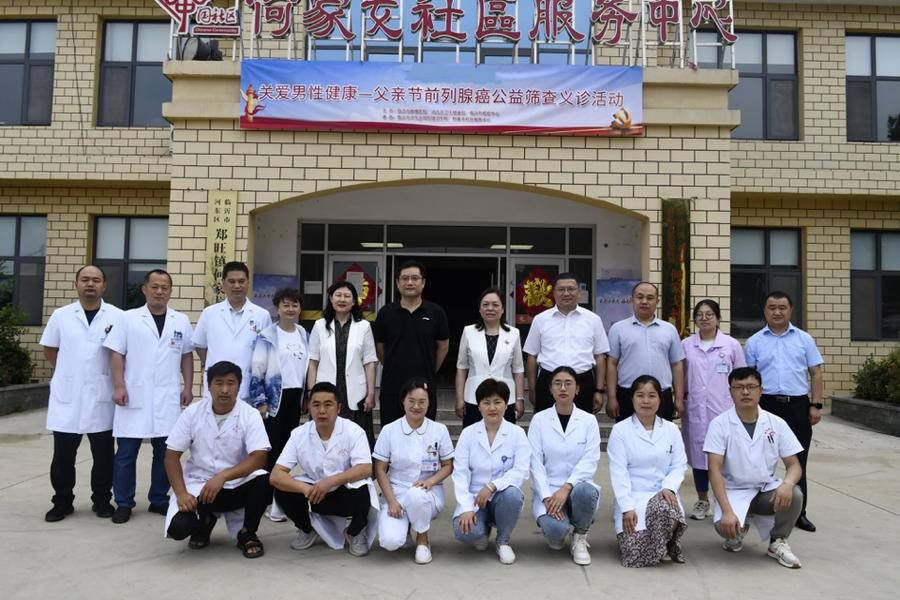
(Free Clinic in Linyi City team)
Diagnosed prostate cancer, precise surgery can be performed with the assistance of Da Vinci surgical robots
At the free clinic site, many patients came to consult with their previous examination materials. Mr. Li, 65, is one of them. Mr. Li was just diagnosed with prostate cancer a few days ago. When he learned about the free clinic, he made a special trip to come to consult with the examination materials.
After carefully reviewing Mr. Li’s examination results and inquiring in detail, Shi Benkang said: “From the current situation, there is an opportunity for radical prostatectomy. However, in order to perform surgery, it is necessary to Further improve the preoperative examination.”
Specifically to the surgical method of prostate cancer, Shi Benkang introduced that with the development of precision medicine, surgical robots, as one of the representatives of high-end intelligent medical equipment, are constantly changing the traditional surgery concept. It has been accepted and recognized by more and more patients because of its advantages of precision, minimal invasiveness, simplicity, and low risk.
As the vanguard of the national urology team, the urology surgery of Qilu Hospital of Shandong University has entered the era of intelligent development. In April 2020, Shi Benkang and his team successfully performed partial nephrectomy for a kidney cancer patient with the assistance of the fourth-generation da Vinci surgical robot, announcing that the fourth-generation da Vinci surgical robot officially began to operate at Shandong University. “Practice career” of the Department of Urology in Qilu Hospital.
Pelvic surgery in urology is concentrated in the narrow space of the human pelvis, which requires fine separation, cutting and suturing. Compared with previous generations of robots, the fourth-generation Da Vinci robot not only adds two new movable joints to the robotic arm, which can realize flexible and precise operation at all angles, but also realizes a naked-eye 3D high-definition surgical field with a magnification of 10 times. Improves the precision of surgical operations.
Under the leadership of Shi Benkang, the Department of Urology, Qilu Hospital of Shandong University has comprehensively expanded and promoted the application of “robot + minimally invasive surgery”, and carried out various surgeries under the Da Vinci Surgical Assist System. Finch robot-assisted surgery has entered the first echelon of the country.
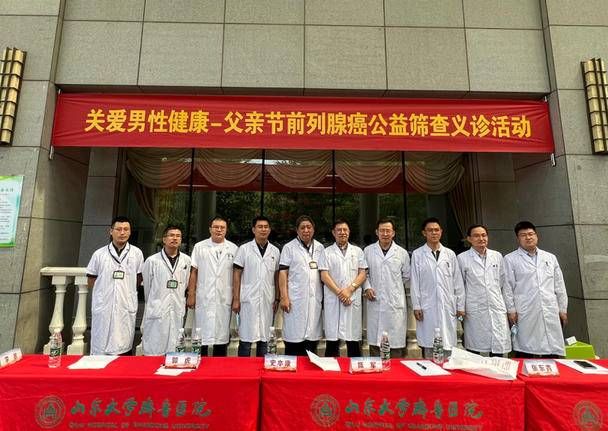
(Shandong University Qilu Hospital Urology Department this free clinic team)
Shi Benkang said that in the future, Shandong University Qilu Hospital Urology Under the leadership of the hospital and the support of the Shandong Medical Doctor Association, the Department of Surgery will not forget the original intention, keep in mind the mission, and do a good job in the diagnosis and treatment of urinary system diseases with more enthusiasm for work and a serious and responsible attitude, and carry out more free diagnosis and treatment. Screening activities to escort the health of people in Shandong and the whole country.